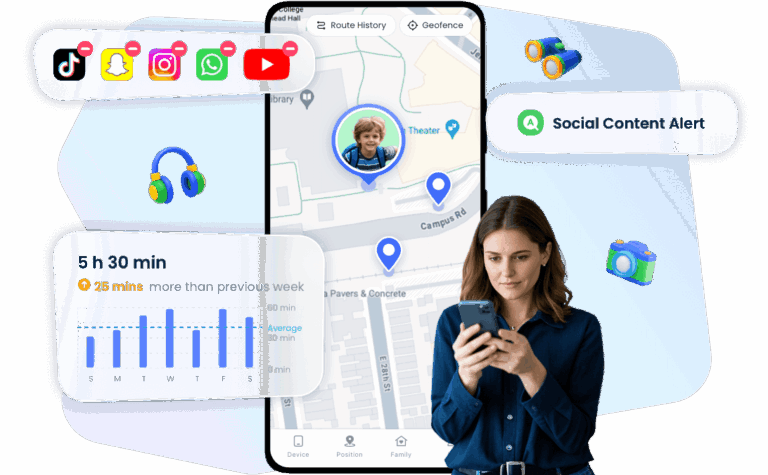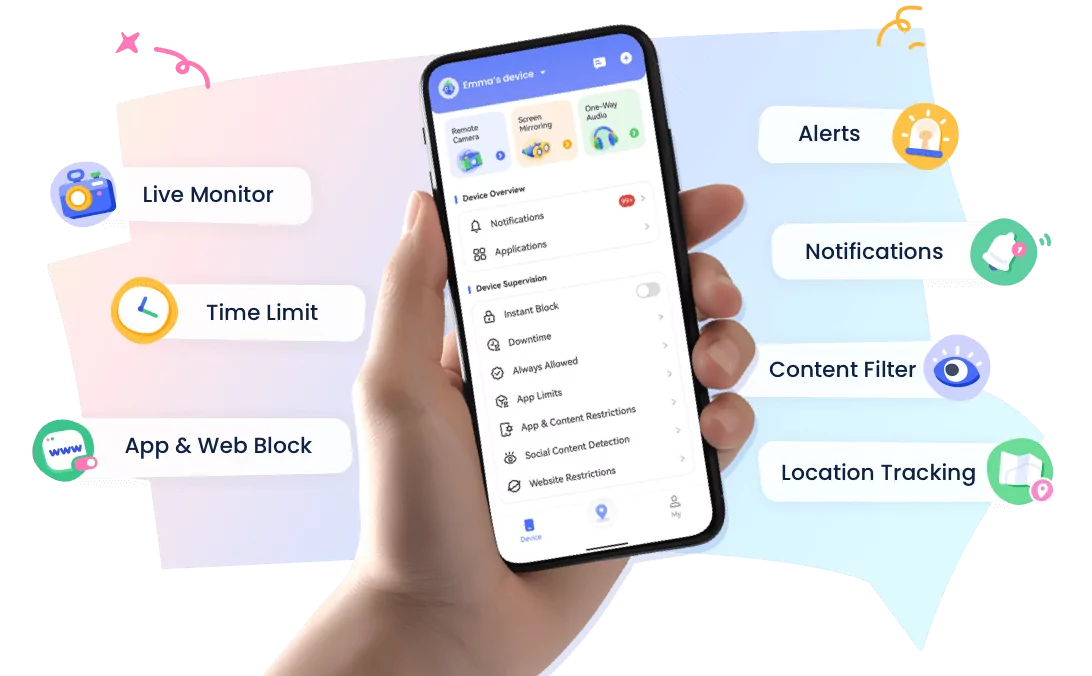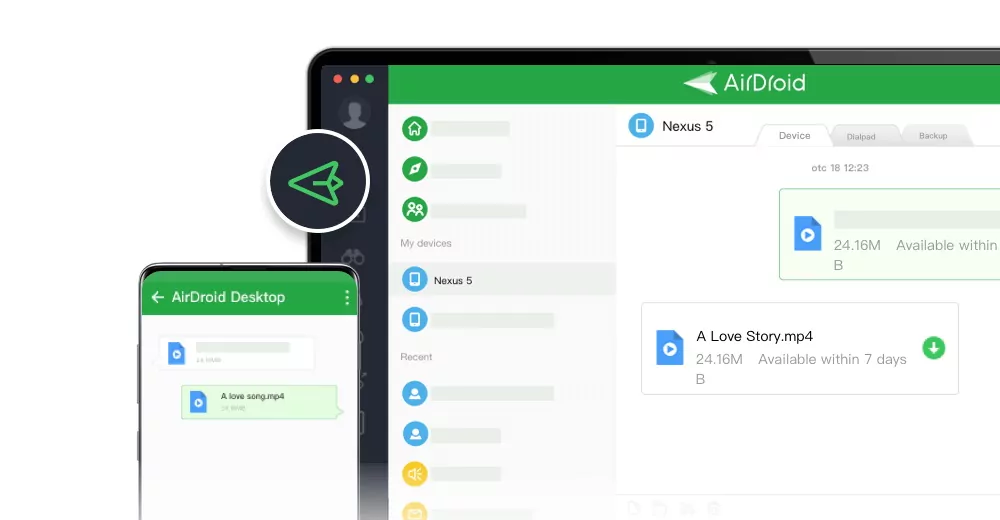What Is Doxxing and What to Do If Being Doxxed
Doxxing happens when someone collects and shares your private information—like your address, phone number, or work details—without your permission. It can feel scary and confusing, but knowing how doxxing works and what steps to take can help you stay safe.
In this article, we’ll explain what doxxing really is, show you common ways people get targeted, and give you clear, practical advice for protecting yourself and your loved ones. And if you ever find yourself the victim of doxxing, we’ll walk you through exactly what to do next. Let’s get started!
Part 1: What is Doxxing?
Doxxing is the act of publicly exposing an individual’s private or personal information without their consent. This is often done with malicious intent, such as to harass, intimidate, or blackmail the victim. Victims may face significant privacy violations, identity theft, and ongoing online threats.
Part 2: How Does Doxxing Really Work?
Imagine you’re browsing online—posting holiday photos, updating your LinkedIn profile, maybe chatting in a forum. To a normal person, that’s all harmless. But to a doxxer, each little piece of information is a clue in a bigger puzzle. Here’s how they put it all together:
OSINT (Open Source Intelligence)
You’ve probably shared your hometown on Facebook or tweeted about your weekend plans. Doxxers scan everywhere that’s publicly visible: social networks, public court records, even old blog comments. By collecting tiny facts—your high school name, the street you grew up on—they can slowly piece together your full name, current address, and sometimes even your phone number.
Hacking
When public information isn’t enough, some attackers try to break in directly. They exploit weak passwords or unpatched software to sneak into your email or cloud account. Once inside, they grab private photos, saved contacts, or backup files that list addresses or Social Security numbers.
Social Engineering
This is the art of tricking people. A doxxer might pretend to be from your bank, calling you up and saying, “We need to verify your details.” Or they’ll message you on a forum, posing as a friendly moderator, asking for proof of identity. Unsuspecting victims hand over passwords, birthdates, or other sensitive data—all without realizing they’re being set up.
Data Brokers
You know those “free background checks” you sometimes see advertised? Behind them are companies legally selling your data—old addresses, property records, and even shopping habits. Doxxers pay a small fee to these brokers and instantly get a treasure trove of personal details, all aggregated in one place.
By weaving together these four threads—public posts, stolen account data, clever manipulation, and purchased records—doxxers can build a frighteningly complete profile of you. That’s why it’s so important to lock down your privacy settings, use strong, unique passwords, and be extra careful about sharing personal details online.
Part 3: Is Doxxing Illegal?
When you hear about doxxing, it’s easy to assume it’s automatically against the law—and sometimes it is. But the reality is a bit more complicated: Doxxing by itself often isn’t listed as a standalone crime. Instead, it usually gets tangled up in other illegal behaviors. Let’s break it down:
Harassment & Stalking Laws
- If someone publishes your address or phone number and then uses that information to threaten or harass you, they can face charges under harassment or stalking statutes.
- Many regions define “cyberstalking” to include repeatedly posting personal details with the intent to frighten or intimidate.
Threats & Extortion
- When doxxed information is used to threaten violence or demand money, it crosses into criminal territory, like making threats or extortion.
- Even sharing private data with a suggestion of “Pay up, or we leak more” can be treated as blackmail.
Privacy Violations
- In some countries and U.S. states, certain personal data—like Social Security numbers or medical records—is legally protected. Posting that kind of data can violate privacy laws.
- Data protection regulations (for example, GDPR in Europe) can allow victims to sue over the unlawful public disclosure of personal information.
Identity Theft & Fraud
If doxxers harvest enough info to impersonate you—open accounts, apply for credit, or file tax returns—they may be charged with identity theft or fraud.
Civil Lawsuits
- Even where criminal charges don’t stick, victims can bring civil suits for invasion of privacy, intentional infliction of emotional distress, or defamation.
- Courts have awarded damages when doxxing led to real-world harm—lost wages, threats to safety, or reputational damage.
Platform Bans & Community Rules
- Almost every major social network, forum, and game platform bans doxxing in their terms of service.
- Accounts found posting someone’s private information without consent can be suspended or permanently banned—even if no criminal charges are filed.
Doxxing itself often sits in a gray zone of the law. But the moment it overlaps with threats, harassment, privacy breaches, or identity theft, it can trigger serious criminal and civil consequences. And even absent legal action, social platforms won’t hesitate to shut it down. That’s why it’s crucial to respect privacy online
Part 4: Common Types of Doxxing with Real Examples
Attackers use different kinds of personal data to terrorize their targets. Below are the most common types of doxxing, plus real stories of what happened when these tactics went too far.
Home Address (“Swatting”)
- What it is: Publishing someone’s street address so that strangers know exactly where they live.
- Why it’s dangerous: Attackers call in fake emergencies (“swatting”) to bring armed police to an innocent person’s home.
- Example: In December 2017, an online gamer feud led to a hoax emergency call routed to Shane Gaskill’s old address in Wichita, Kansas. Police arrived with guns drawn and fatally shot resident Andrew Finch, who had nothing to do with the dispute.
Source from: https://en.wikipedia.org/wiki/2017_Wichita_swatting
Phone Number (“Swatting”)
- What it is: Sharing or stealing a phone number lets attackers hijack your two-factor authentication or drown you in scam texts.
- Why it’s dangerous: With control of your number, they can reset account passwords or commit fraud.
- Example: In 2022, Canadian streamer Clara “Keffals” Sorrenti was not only swatted, but her phone number was also used in harassment campaigns, leading to repeated police calls and wrongful detainment.
Source from: https://en.wikipedia.org/wiki/Swatting
Workplace or School Details
- What it is: Revealing where someone works or studies to target their employer or school.
- Why it’s dangerous: Trolls can flood an institution with fake complaints, or even convince HR to discipline or fire the victim.
- Example: After the 2020 U.S. election, employees of major voting machine companies were doxxed. Online rumors falsely accused them of rigging results, so much so that Election Systems & Software staff prepared for both public backlash and potential swatting.
Judicial & Public Figures’ Data
- What it is: Posting judges’ or politicians’ personal details like home addresses or phone numbers.
- Why it’s dangerous: It can lead to threats, intimidation, or attempts to influence legal decisions.
- Example: In April 2025, personal information about Judge Angela Tucker was leaked online after a high-profile bond ruling. The doxxing prompted an FBI investigation due to threats made against her.
Financial Records & Identity Data
- What it is: Exposing bank account numbers, transaction histories, or Social Security details.
- Why it’s dangerous: Attackers can drain accounts, commit identity theft, or extort money.
- Example: Between 2013 and 2014, U.S. hacker Mir Islam ran a site called “Exposed,” where he published sensitive data on politicians and celebrities—including Michelle Obama and Joe Biden. He later used swatting to retaliate against journalists who reported on him, earning a two-year prison sentence.
These examples show how tiny bits of your info can lead to real danger. That's why you must lock down your privacy settings, create strong passwords, and be careful what you share online.
Part 5: How to Protect Yourself and Your Family
Keeping your personal information safe isn’t just about you—it’s about everyone you care for. Here are some simple steps you can take right now:
Lock Down Your Online Accounts
Go through each social media account (Facebook, Instagram, Twitter, etc.) and make sure only friends or approved followers can see your posts. Plus, use a different password for every site. Make each one long (at least 12 characters), mixing letters, numbers, and symbols.
Turn On Two-Factor Authentication (2FA)
Enable 2FA on your most important accounts: email, banking, and social media. 2FA adds an extra check when you log in. Even if someone steals your password, they still need a code (sent to your phone or email) to get in.
Be Careful What You Share
Think twice before posting any personal details—home address, phone number, vacation plans, or children’s photos.
Avoid filling out “fun” quizzes or surveys that ask for your mother’s maiden name or hometown; these answers can help hackers guess your passwords.
Use AirDroid Parental Control
It’s important to talk with your family members about why privacy matters. Show them how to adjust their settings and recognize phishing messages (fake emails or texts asking for personal info). AirDroid Parental Control gives you peace of mind by watching over your family’s digital world to prevent being doxxed. Here are its features:
- Instant Alerts: Get notifications if your family tries to visit risky websites or receives bullying texts.
- Track Location: See your family’s location in real time.
- Set Screen Time Limits: Control how much time your family spends on specific apps or games.

Part 6: What to Do If You Are Being Doxxed
Finding out you’ve been doxxed can feel overwhelming, but acting quickly can help you stay safe and limit the damage. Here’s a step-by-step guide:
Stay Calm and Document Everything
- Take screenshots of any posts, messages, or websites where your information appears.
- Note dates, URLs, and any usernames involved. This record will help if you report the incident later.
Report and Remove the Content
- Social Platforms: Use the “Report” or “Flag” feature on sites like Facebook, Twitter, and Instagram to request the removal of your personal data.
- Websites & Forums: If your doxxed info appears on a blog or forum, look for a “Contact Us” or “DMCA” page. Many sites will take down private data if you ask.
- Search Engine Removal: Google and Bing both let you submit a request to remove sensitive personal info from search results.
Lock Down Your Accounts
- Change Passwords: Immediately update passwords on all critical accounts—email, banking, and social media. Use new, strong, unique passwords.
- Enable Two-Factor Authentication: Turn on 2FA everywhere you can. This adds an extra barrier, even if someone has your password.
Notify Your Network
- Friend & Family: Let close contacts know what’s happening so they can ignore any suspicious messages or calls that seem to come from you.
- Employer or School : If your workplace or school info was exposed, inform HR or administrators so they can handle inquiries from strangers.
Contact Authorities if You’re in Danger
- Swatting Threats or Immediate Harm: Call your local emergency number (for example, 911 in the US) and tell them you’ve been doxxed and fear a false report or threat.
- Harassment & Extortion: If someone uses your doxxed info to threaten violence, demand money, or stalk you, file a report with your local police.
By following these steps, you can regain control and protect yourself from further harm. Remember, you’re not alone, and there are tools and people ready to support you.
Conclusion
Doxxing is the unwanted sharing of your private information online. It can feel frightening, but you are not powerless. By understanding how doxxing works, locking down your accounts, and knowing exactly what steps to take if it happens to you, you can protect yourself and your family.
Remember to adjust your privacy settings, use strong, unique passwords, and enable two‑factor authentication. If you ever become a target, document the attack, remove exposed data, and reach out for help—whether from friends, your workplace, or the authorities. Staying informed and prepared is the best defense against doxxing. Stay safe!












Leave a Reply.